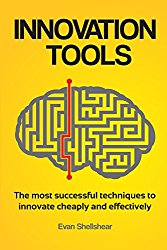Shellshear sets Australian start-ups straight on Lean approach
START-UP businesses looking to follow the ‘Lean Start-up’ approach currently favoured by Silicon Valley should pause and think it through carefully, advises Australian start-up specialist Evan Shellshear.
In Dr Shellshear’s experience, the Lean Start-up imperative may be more of a hindrance than a help to many Australian early-stage businesses. In fact, he has identified three specific situations in which the Lean Start-up approach works against a fledgling business. 
“We’ve all heard about the Lean Start-up and how it’s transformed Silicon Valley and the start-up world,” Dr Shellshear said. He is the CEO of Simultek, where he works with start-up businesses in all phases.
“However, as you would expect, it turns out the Lean Start-up process is not a perfect fit for everyone.
“The Lean Start-up approach to product and service development is all about discovering what your business assumptions are and testing the assumptions with experiments,” Dr Shellshear said.
“You create a hypothesis, run a test and then use the result of that test to improve your product or service and then keep iterating using the learnings to improve.”
Dr Shellshear’s research has identified three cases in which the lean methodology should not be used: when people’s lives depend on your product; when other people rely on your product to build theirs; and, as he put it, “when there are simply no hypotheses to test”. He is an Australian innovation thought leader and has recently published a best-selling book on Amazon: Innovation Tools.
“The problem with the Lean Start-up is like all new management trends: it gets hyped to the point of hyperbole and people try it in the wrong situations and become disillusioned,” Dr Shellshear said.
“Choosing the right service and product development model is unfortunately something you only get one shot at, so you’ll want to make sure the first iteration is correct …
“Before blindly using a lean methodology, ask yourself first, is lean right for you?” 
WHEN TO AVOID LEAN START-UP METHODOLOGY
When people’s lives depend on your product. “You don’t want to bring a product out on the market to test a hypothesis if people can be fatally injured due testing it,” Dr Shellshear said.
When other people rely on your product to build theirs. “Constantly iterating on a product which people rely on will mean that they will stop relying on it.”
When there are simply no hypotheses to test. “If you know the market conditions, the demand for your service and/or are simply providing a commodity, then get it out there and don’t waste time,” Dr Shellshear urged.

 How to resolve AdBlock issue?
How to resolve AdBlock issue?